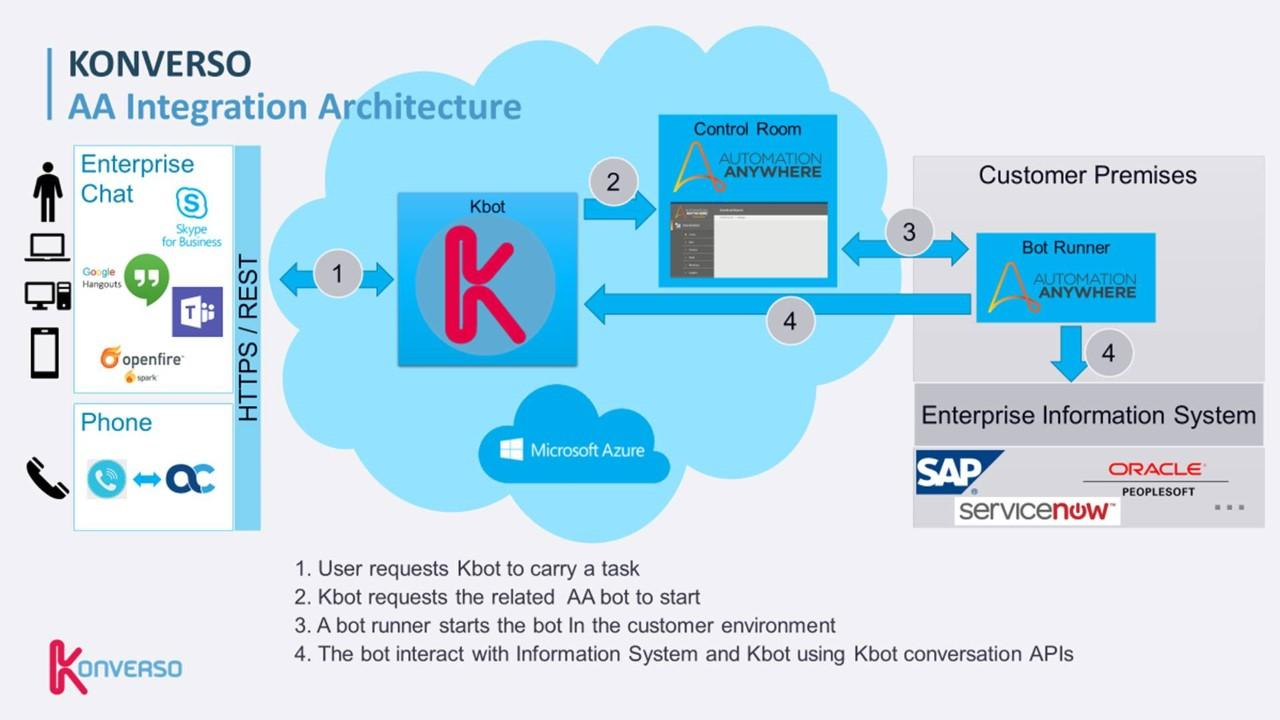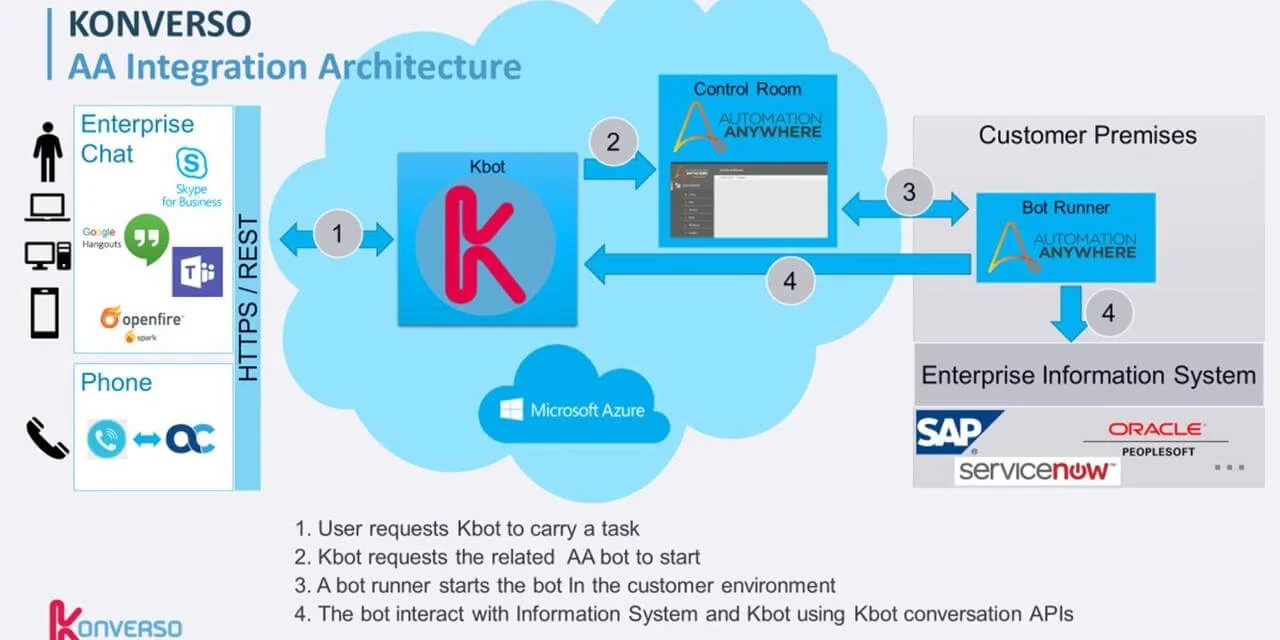AI bots: the evolution toward cognitive process automation

For years, Chatbots (interacting with humans) and Robotic Process Automation (executing human tasks) have been working “side by side” to help enterprises streamline their operations. With Artificial Intelligence and machine learning, Robotic Process Automation is now merging into Cognitive Process Automation (CPA) that brings more context and knowledge to automation. AI-powered chatbots and Cognitive Process Automation can now work “hand in hand” and open the way for end-to-end Enterprise Automation.
That is why Konverso has been working with Automation Anywhere, the world’s most widely deployed automation platform, to improve the automation of the IT Service Desk and the Digital Workplace, while dramatically reducing operational costs.
What is Cognitive Process Automation
Cognitive automation is a subset of artificial intelligence - using specific AI techniques that mimic the way the human brain works - to assist humans in making decisions, completing tasks, meeting goals and fulfilling business needs.
Cognitive Process Automation integrates technologies such as natural language processing, image processing, pattern recognition, and - most importantly - contextual analysis to make more intuitive leaps, perceptions, and judgments. (more on Automation Anywhere’s website)
Konverso and Automation Anywhere make bots, RPA and Cognitive Process Automation work together
Konverso’s conversational AI platform and Automation Anywhere’s RPA solutions are integrated in an end-to-end automation solution for IT help desks and Digital Workplace environments. Working hand in hand, agile AI chatbots/voicebots and AI Automation can increase operational efficiencies, business agility and customer experience.
Typically, many IT Service Desks organizations are missing out on an efficient and cost-effective way to absorb new software deployments linked to the massive wave of Digital Transformation.
But ticket volume is soaring (61% of support organizations saw an increase in ticket volume in 2018 - HDI report) and are impacting the cost of IT service desk (estimated to more than 300 € per business user). (more details in this infographic).
We look at where business users are, what they do and how we unlock additional productivity for them. That is why we start the user’s journey in solutions such as Microsoft Teams where business users collaborate.
Our intelligent virtual agent is available there any time. Based on the user’s input, Kbot will trigger the appropriate Automation Anywhere bot in a series of automated interactions and workflows that will assure the process is secured.

The potential for transformation in IT service Desk is massive
There are many use cases where Chatbot and RPA can be deployed. For instance, 40% of helpdesk calls relate to password reset or account lockout (Gartner). Enabling the users to reset their password with a self-serve solution can save 70% to 90% of the help desk costs associated with ticketing system and passwords.
In a case of lost password, a user can chat or call Konverso’s Kbot, which will qualify the incident and assist to user in the resolution of his problem.
To unlock the account and create a new password, Automation Anywhere’s bot will send secret questions to the users, confirm the expected answers to the chatbot, and upon validation create a new password and send it to the user by email.
This example, among many others, highlights the massive potential for workflow automation and how it can help companies go beyond the automation of simple tasks to automate full processes.
It also reminds us that automating processes won’t be enough if end-users are not assisted by context-aware bots to adapt to those massive and continuous changes.
Getting the right partner is crucial
In this “Report for the State of RPA and Smart Automation”, technology companies show an adoption rate of 80.9%, as compared to 87.3% in manufacturing and 84.7% in Banking and Finance (North American market).
But adoption rates do not always translate in project success. According to a Deloitte survey of 400 global firms, 63% of organizations did not meet delivery deadlines for RPA projects, and the others suffered long implementations and delayed return on investment (ROI). Another earlier EY study found that 30% to 50% of initial RPA projects fail.
Because automating repetitive tasks and automating entire business processes are not the same thing. Implementing RPA in a context of digital transformation implies transforming processes, accompanying the end-users in this transformation and betting on technologies that combine agility and scalability.
Because of this complexity, finding the right partners with compatible Chatbot and RPA technologies is crucial.



